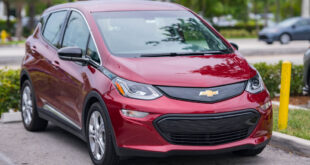Electric Car Future Predictions: Us in the Coming Decades The future of electric cars (EVs) is a topic of great interest as the world transitions toward cleaner, sustainable energy solutions. With technological advancements and government initiatives driving adoption, EVs are no longer a niche product but a mainstream solution. This article delves into the future of electric cars, covering advancements, challenges, and what lies ahead.
The Current Landscape of Electric Cars
Electric vehicles have seen tremendous growth in the past decade. Major automakers have committed to phasing out internal combustion engine (ICE) vehicles, and consumers are embracing EVs for their environmental and economic benefits.
- Rising Popularity: Global EV sales crossed 10 million units in 2023, with a projected CAGR of 25% in the coming years.
- Government Support: Subsidies, tax benefits, and regulations are accelerating the shift toward EVs.
- Infrastructure Expansion: Charging networks have significantly improved, reducing range anxiety.
Technological Advancements Shaping the Future
- Battery Innovations
Advancements in lithium-ion and solid-state batteries are making EVs more efficient and affordable. Higher energy densities and faster charging times are on the horizon. - Autonomous Vehicles Integration
EVs and self-driving technology are converging. Automakers are focusing on software-driven innovations to enhance safety and convenience. - Wireless Charging
Wireless or inductive charging technology may soon replace traditional plug-in systems, offering seamless user experiences. - Extended Range Capabilities
Future EVs will likely achieve ranges exceeding 500 miles on a single charge, rivaling ICE vehicles.
Challenges in the Electric Vehicle Industry
Despite the optimism, EVs face several hurdles:
- High Initial Costs: EVs remain more expensive than ICE cars, though the gap is narrowing.
- Charging Infrastructure: Rural and underdeveloped areas still lack adequate charging stations.
- Battery Recycling: Handling and recycling EV batteries in an eco-friendly way is an ongoing challenge.
- Energy Source Debate: The sustainability of EVs depends on transitioning power grids to renewable energy.
Predictions for the Future of Electric Cars
- Mainstream Adoption by 2035: Analysts predict that by 2035, EVs will dominate the automotive market globally.
- Affordable EV Models: Entry-level EVs will become more accessible to middle-income households.
- Increased Range and Efficiency: Technological advancements will address range anxiety and energy efficiency concerns.
- Renewable Energy Integration: EVs will increasingly rely on solar and wind power, reducing carbon footprints.
- Second-Life Batteries: Used EV batteries will find applications in energy storage systems.
10 Tips for Maximizing Your Electric Car Experience
- Invest in home charging equipment for convenience.
- Plan long trips around available charging stations.
- Regularly update your EV’s software.
- Use eco-driving techniques to extend range.
- Explore government incentives to reduce upfront costs.
- Monitor battery health and avoid deep discharges.
- Opt for EVs with advanced thermal management systems.
- Join EV user communities for tips and support.
- Consider solar panels to power your EV sustainably.
- Stay informed about new EV developments and features.
10 Frequently Asked Questions About Electric Cars
- Are electric cars cheaper to maintain than gas cars?
Yes, they have fewer moving parts and no oil changes, resulting in lower maintenance costs. - How long does it take to charge an EV?
It depends on the charger type. Level 2 chargers take 4–8 hours, while fast chargers take 20–60 minutes. - What is the lifespan of an EV battery?
Most EV batteries last 10–20 years, depending on usage and care. - Can EVs perform well in cold weather?
Yes, though battery efficiency may reduce slightly in colder climates. - Are EVs suitable for long road trips?
Modern EVs with extensive charging networks make long trips feasible. - How sustainable are EVs compared to gas vehicles?
EVs are more sustainable, especially when charged with renewable energy. - Is it possible to charge an EV at home?
Yes, most EVs come with home charging capabilities. - How do I find charging stations nearby?
Apps like PlugShare or ChargePoint can help locate nearby stations. - What is the resale value of electric cars?
Resale value is improving as EV adoption increases and battery technology advances. - Are EVs safe in accidents?
Yes, EVs undergo rigorous safety testing and often outperform gas cars in crash tests.
Conclusion
The future of electric cars is undoubtedly bright, driven by technological advancements, governmental support, and a global push toward sustainability. By addressing existing challenges and seizing emerging opportunities, the EV industry is poised to revolutionize transportation.
As adoption grows, the world moves closer to achieving environmental goals and enhancing energy independence. The next decade will not only redefine mobility but also strengthen humanity’s commitment to a cleaner, greener planet.
 oto car insurance used car repair
oto car insurance used car repair
